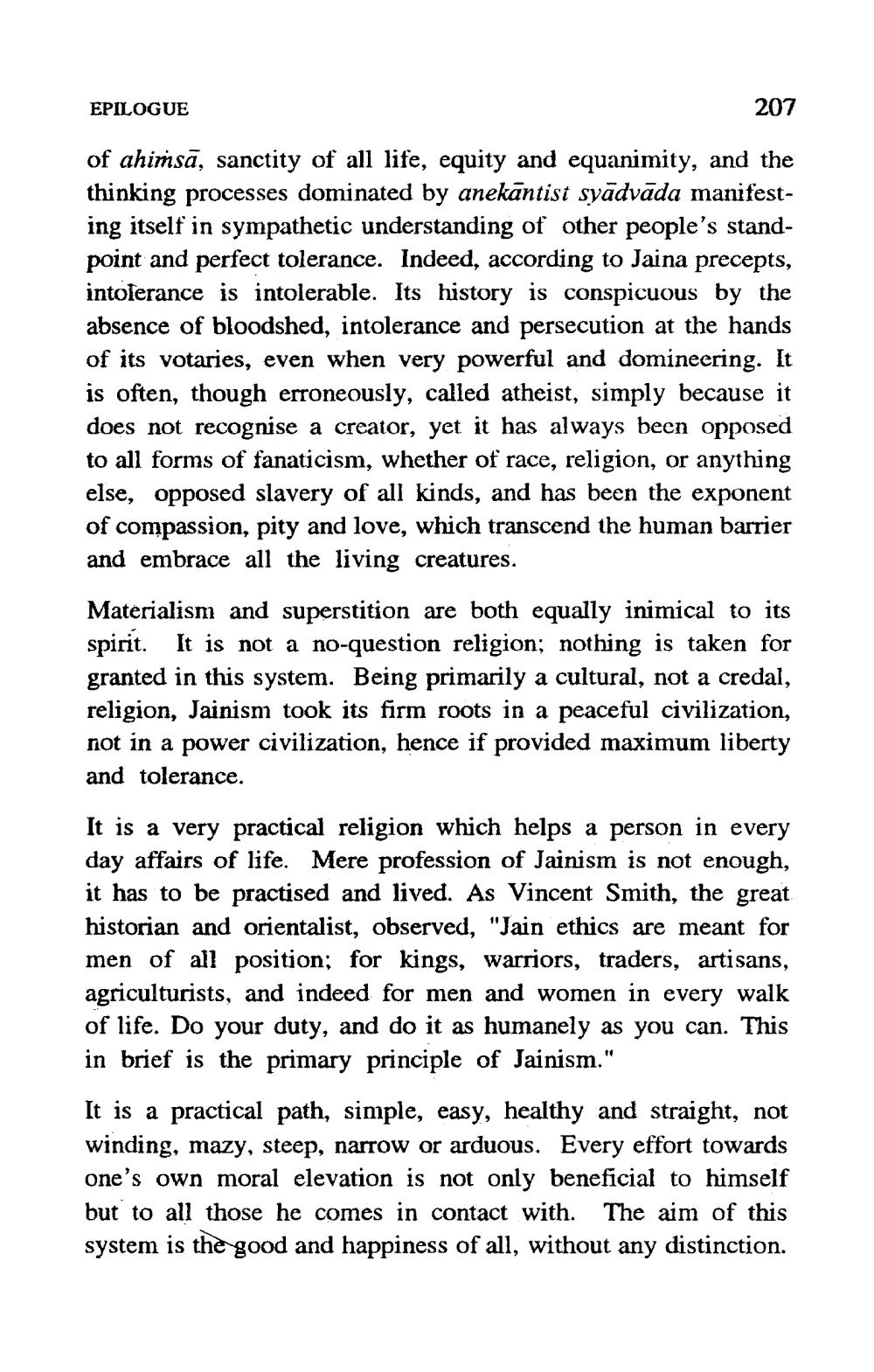________________
EPILOGUE
207
of ahimsā, sanctity of all life, equity and equanimity, and the thinking processes dominated by anekāntist syādvāda manifesting itself in sympathetic understanding of other people's standpoint and perfect tolerance. Indeed, according to Jaina precepts, intolerance is intolerable. Its history is conspicuous by the absence of bloodshed, intolerance and persecution at the hands of its votaries, even when very powerful and domineering. It is often, though erroneously, called atheist, simply because it does not recognise a creator, yet it has always been opposed to all forms of fanaticism, whether of race, religion, or anything else, opposed slavery of all kinds, and has been the exponent of compassion, pity and love, which transcend the human barrier and embrace all the living creatures.
Materialism and superstition are both equally inimical to its spirit. It is not a no-question religion; nothing is taken for granted in this system. Being primarily a cultural, not a credal, religion, Jainism took its firm roots in a peaceful civilization, not in a power civilization, hence if provided maximum liberty and tolerance.
It is a very practical religion which helps a person in every day affairs of life. Mere profession of Jainism is not enough, it has to be practised and lived. As Vincent Smith, the great historian and orientalist, observed, "Jain ethics are meant for men of all position; for kings, warriors, traders, artisans, agriculturists, and indeed for men and women in every walk of life. Do your duty, and do it as humanely as you can. This in brief is the primary principle of Jainism." It is a practical path, simple, easy, healthy and straight, not winding, mazy, steep, narrow or arduous. Every effort towards one's own moral elevation is not only beneficial to himself but to all those he comes in contact with. The aim of this system is the good and happiness of all, without any distinction.




